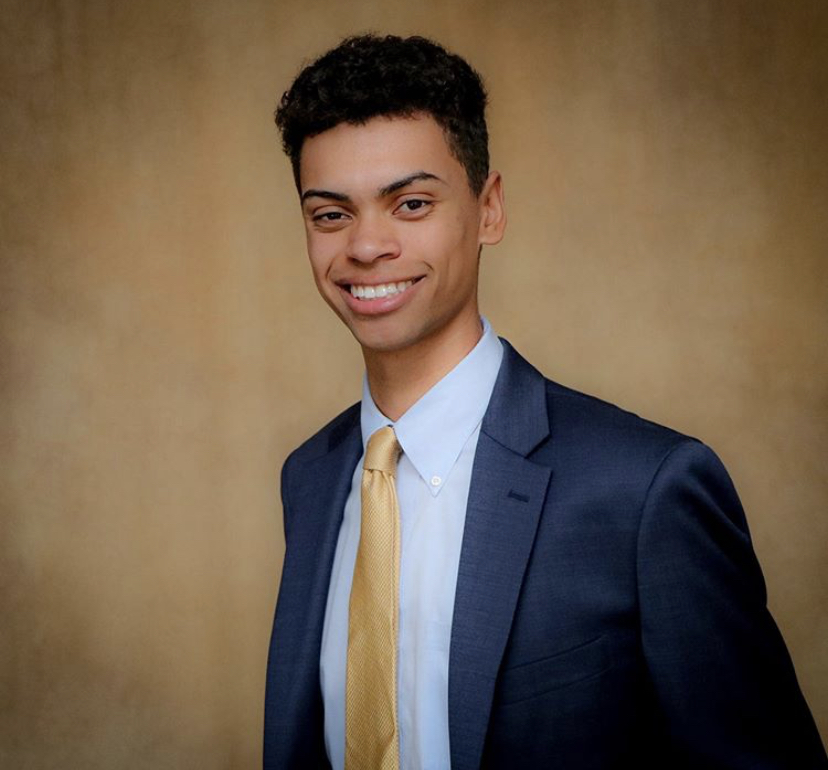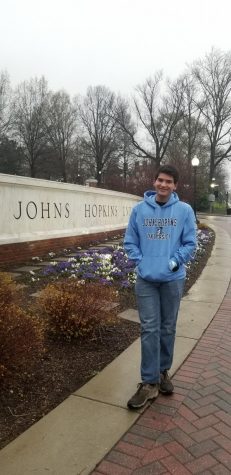Sebastian Nalls: ETHS alum runs for mayor
October 20, 2020
While the general election is fast approaching, it is far from the only important election in the coming months, among them being the 2021 municipal election which will decide the next mayor of Evanston.
While the primary election will not take place until Feb. 23, the race has already begun with two candidates announcing their intentions to run for the office: former state senator Daniel Biss and recent ETHS alumnus Sebastian Nalls.
Nalls, currently a junior at Purdue University, announced his campaign on Aug. 29 urged on by the city’s choices with regards to the Robert Crown project and the eruption of protests following the murder of George Floyd.
“One of the base reasons for running were the issues that came from the funding that Robert Crown was receiving, particularly the $400,000 donation that they received back in 2018…. I’ve gone to Robert Crown my entire life from preschool to summer camps. I was [asking] who’s gonna be primarily impacted by this decision, and that was minority youth that lives in the area,” Nalls said. “Another [key] moment was the protests following George Floyd’s death and the reaction from the city and some of the city council members. Both of those combined were kind of my driving force.”
Nalls has previously worked for the City of Evanston, directing multiple programs since the beginning as a counselor-in-training while at ETHS; Nalls believes this experience with the city structure will help guide his decisions once in office, decisions that will be based around the needs of the community.
“I want to make sure that I am an advocate for individuals in the community. The scope of mayor is pretty narrow, and it doesn’t have much power—it’s mostly the city council and the city manager that do most of the heavy lifting when it comes to city governance—so being an advocate for the people is something that I really want to achieve while in office,” Nalls said.
The same issues of inequity that are at the core of Nall’s choice to run are front and center in his mission statement to address racial justice and equality, fiscal policy and increased early childhood education funding.
“Racial justice is at the forefront of our campaign. [It’s] something that we’ve been focusing a lot on because it stems to other issues such as violence in the community and [fiscal policy],” Nalls said. “One of the things that we’re pushing for is the reduction in police funding to fund the Parks and Recreation Department, the Community Development Department, as well as the Health and Human Services Department. By redistributing those funds and further expanding those departments, we can focus on areas that have been marginalized throughout the decades here in Evanston, and proceed to make Evanston a more equitable place by providing more economic opportunities in these neighborhoods.”
Another issue close to Nalls’ heart is environmental stability, something he feels the city has failed to properly implement following the passing of the Climate Action and Resilience Plan (CARP) in late 2018.
“CARP was adopted back in 2018, but it hasn’t really been implemented to the full scope of actually going through and changing some of our city buildings to rely on renewable energy. That’s something that we’re looking forward to, the actual implementation of that plan,” Nalls said.
Equally as important as policy, Nalls hopes to create and maintain healthy, working relationships with youth activism groups in Evanston, such as Evanston Fight for Black Lives and E-Town Sunrise, something which many have accused Mayor Steve Hagerty of failing to do.
“Youth activists, especially here in Evanston, have spurred this movement…. It’s extremely important that these individuals are out in the community, being activists for something that they believe in…. Having a good line of communication, talking to these groups, is probably the most effective thing to do as mayor, and it’s ultimately one of the duties of the mayor as well,” Nalls said.
Mobilizing these groups, and others like them is crucial in Nalls’ view of Evanston’s future: one that acknowledges the faults of the past and actively strives to heal the divides that exist, particularly with regards to the history of discriminatory housing policy in the city.
“There’s always been the [belief that] all the things that are happening in Minneapolis, Louisville, Chicago can’t happen in Evanston because we’re so diverse, but people often forget that African-Americans had been redlined into various wards all over the city less than 50 years ago. We are still seeing the ramifications of doing that…. We’ve taken strides in the right direction since then, but there is still a lot of work to be done here in Evanston,” Nalls said. “As a city where we pride ourselves on being so diverse, so equitable, we need to actually speak on it and act on it… [producing] the necessary legislation to ramify and heal that process.”
While Feb. 23 is a long way off, the first phase of the race is reaching its end, as the 921 signatures required to qualify for the ballot are due on Nov. 23. While the campaign has yet to reach this number, Nalls is confident in its ability to do so.
“[Getting signatures has] definitely been a challenge with COVID-19, there’s no question about it. A lot of people aren’t very open when you go door-to-door, and I appreciate those who have taken the time to talk to me and our other volunteers [including campaign manager and ETHS senior Mia Houseworth]…. Currently, we’re right on track to hit the necessary amount of signatures we need to get,” Nalls said.
The campaign trail may be a challenging one, but it is a challenge that Nalls is ready to rise and face. It is a challenge that stretches beyond his campaign, calling upon all Evanstonians to reach for the future that lies ahead.
“What we’re trying to achieve is [rooted in] a movement that is bigger than me; it encompasses everyone who seeks to have meaningful change in Evanston. Our campaign will bring more meaningful change to Evanston than what we’ve seen in the past,” Nalls said. “We want to come to the table, bring alderman together and say, ‘These are issues that the community is facing; we need to act on them. We need to change something because, at the end of the day, we can’t just keep having the same [broken] system.’”










